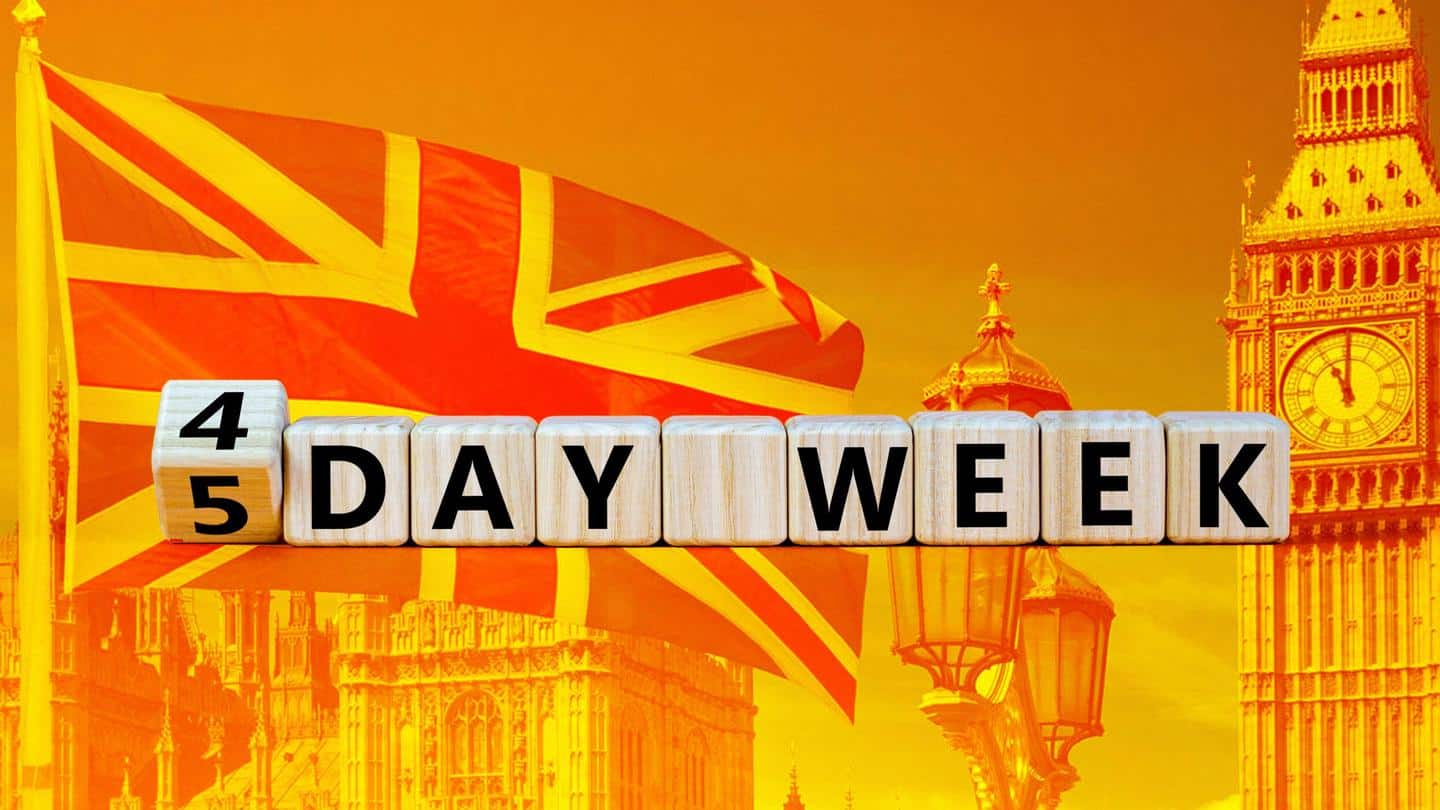
30 UK companies to start 4-day workweeks from June
What's the story
The United Kingdom will kick start a trial of a four-day workweek for employees from June.
The six-month-long pilot project will see the participation of over 30 companies that will allow their employees to work 32 hours per week without cutting their wages and benefits.
Reportedly, participating companies will ask employees to spread the 32 hours over a period of five days.
Context
Why does this story matter?
The trial is being led by the 4 Day Week Global campaign in partnership with think tank Autonomy and researchers at Oxford University, Boston College, and Cambridge University.
The trial aims to measure whether longer weekends increase the productivity of the employees.
Notably, the UK trial is among several other trials conducted in other countries, including Spain, New Zealand, Japan, Scotland, and Ireland.
Details
'Studies say productivity improves'
Joe Ryle—director of the UK's Four Day Week Campaign—said, "Moving to a four-day week would be a win-win for companies."
"Studies have shown that productivity improves along with corresponding gains in workers' well-being," he added.
Apart from productivity, researchers will also focus on workers' well-being, assess the impact of the trial on the environment and gender equality, 4 Day Week Global said.
Trial
'Businesses shifting to productivity-focused strategies'
Joe O'Connor—the pilot program manager for 4 Day Week Global—said the trial will help "companies move away from simply measuring how long people are 'at work,' to a sharper focus on the output being produced."
He also said that "more and more" businesses are moving to productivity-focused strategies.
"We are excited by the growing momentum and interest in our pilot program," he added.
Success
Trial in Iceland showed increase in productivity
Meanwhile, a trial conducted by the Icelandic government from 2015 to 2019 was recently hailed as an "overwhelming success," with 86% of the country's workforce working shorter hours.
"Worker well-being dramatically increased across a range of indicators, from perceived stress and burnout to health and work-life balance," the trial found.
It further found that revenue "remained neutral" throughout the trial.